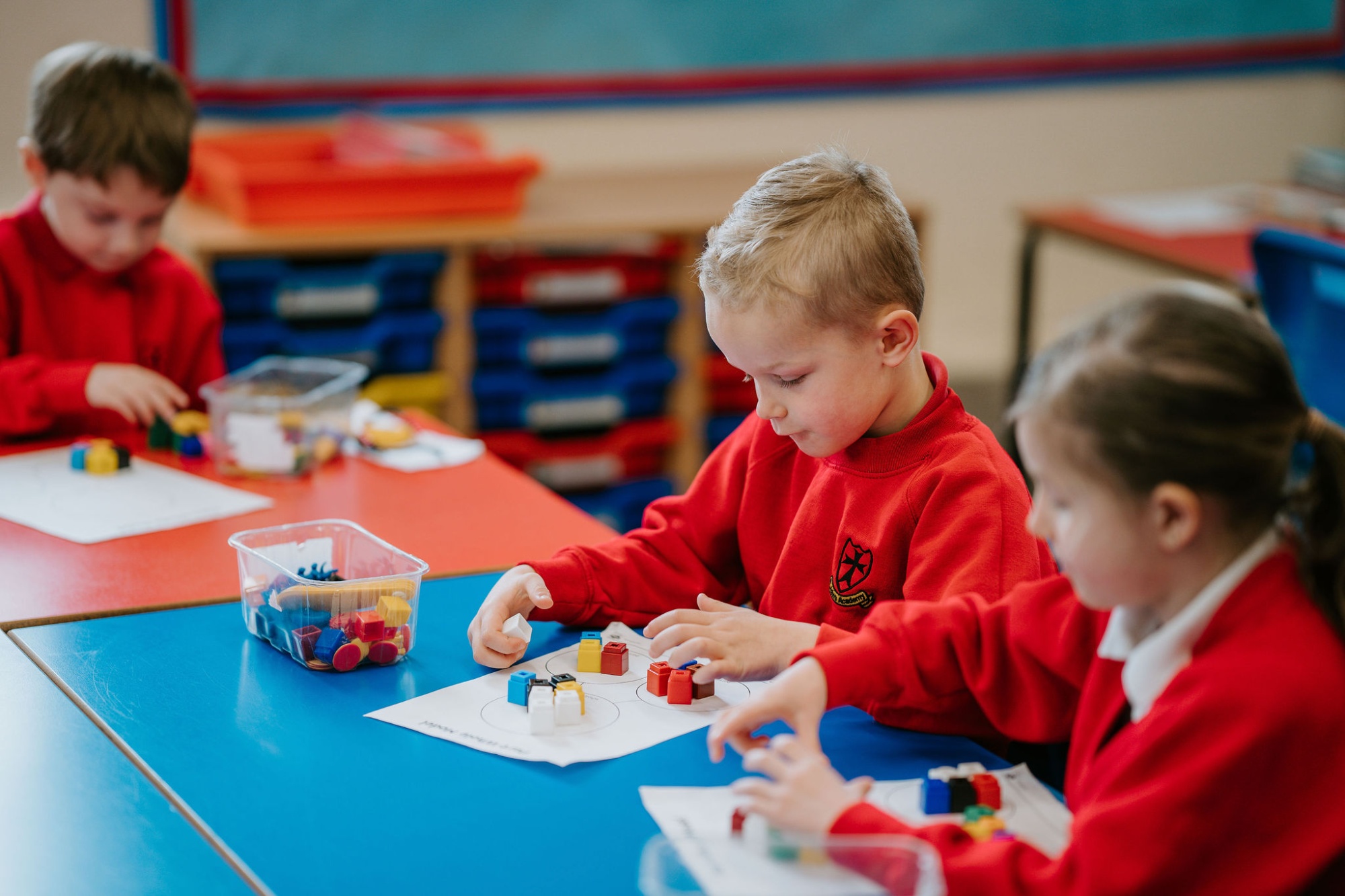Maths

Maths Curriculum Intent
-
Every child has the skills to solve problems, to reason, to think logically and to work systematically and accurately.
-
Our Growth Mindset approach is a fundamental part of our Mathematics teaching and we actively encourage the children to understand that making mistakes is all part of our mathematics learning journey.
-
Pupils should make rich connections across mathematical ideas to develop fluency, mathematical reasoning and competence in solving increasingly sophisticated problems.
-
The expectation is that the majority of pupils will move through the programmes of study at broadly the same pace.
-
A range of mathematical resources are used to ensure that pupils move through the concrete, pictorial and abstract stages of learning.
-
Our ‘we can all do Maths’ approach will ensure that children leave St John’s with the belief that each one of us can achieve our very best in this subject and will become a lifelong learner in Mathematics.
Maths Curriculum Implementation
-
We use Power Maths through the school (EYFS-Y6) supplemented by ‘White Rose’ Maths.
-
At the heart of Power Maths is a clear and structured teaching and learning process that makes every child master each maths concept securely and deeply.
-
Teachers follow the structure of lessons but are able to step away from Power Maths if need be, to embed understanding in any area.
-
Daily lessons follow the same ‘Discover’, Share, Think Together’ elements
-
Discover brings the Maths into a real-life scenario- whole class discussion and use of practical equipment when appropriate.
-
Share allows teachers then to use models/ images and mathematical representations to address errors and misconceptions.
-
Think Together allows the children to work together to embed their understanding of the concept being taught.
-
Children in Yr 2-6 use maths journals for supplementary learning to practise fluency, problem solving and reasoning
-
Manipulatives and practical equipment are used as an integral part of learning.
-
Fluency is taught and practised weekly.
-
Intervention happens quickly during the lesson or sometimes after if need be. Teachers support children on an individual and group basis.
-
Challenge and Going Deeper activities are provided for children working at greater depth.
-
Outlier children in each year group are identified and monitored by the Maths lead and SENDCO. These children receive a Maths curriculum personalised to their learning needs in coordination with ANP targets
-
Marking and feedback often involves marking workshops which allows for discussion and to address errors and misconceptions during the lesson and before the next lesson.
Maths Curriculum Impact
-
Through pupil voice, children are confident in talking about their learning and believe they can achieve through our growth mindset approach.
-
Children are developing the skills to make connections between mathematical topics and are able to retrieve prior learning.
-
Children’s fluency skills support access to reasoning problems.
-
Children are meeting end of year NC expectations
-
Teachers assess throughout lessons and units of learning to inform next steps in learning
-
End of unit checks and assessment sheets are completed regularly
-
End of year summative assessments are completed
